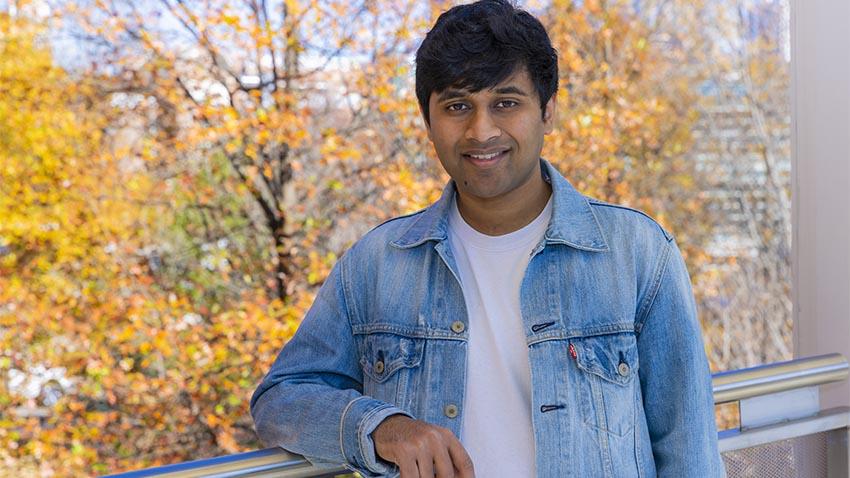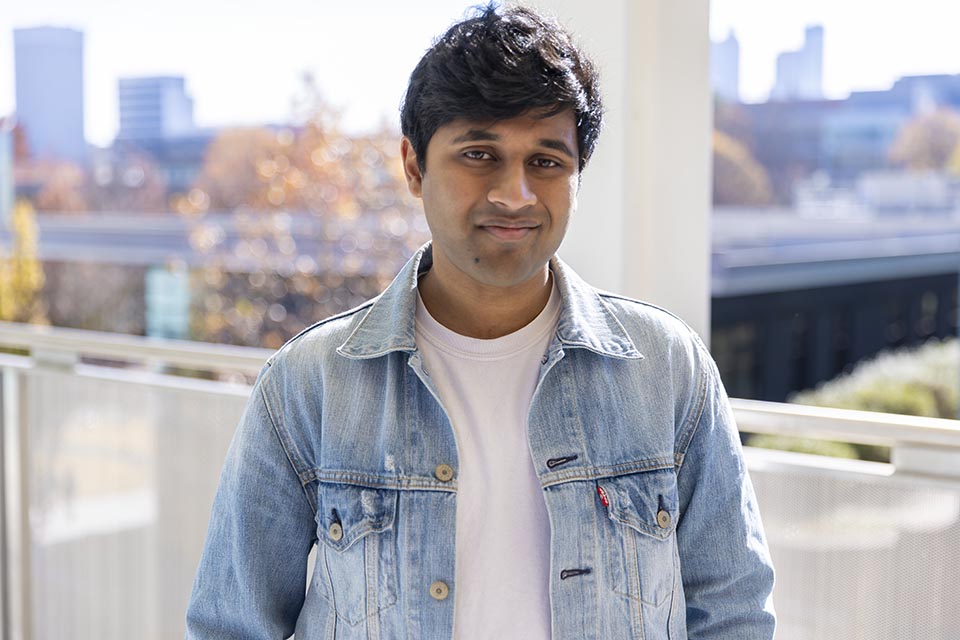
Graduating CS Major Encourages Others to Explore All Computing Has to Offer
Rohit Vemuri’s academic journey includes several internships that refined his interests. From a medical center to Meta and Amazon, each experience provided opportunities to explore the computer science (CS) field.
Vemuri’s decision to pursue CS and focus on Intelligence + Modeling & Simulation threads was influenced by these experiences and he encourages others to network as much as possible to learn about the field.
Beyond academics, Vemuri’s influence extends to campus life through clubs he started and his service as a student assistant in the College of Computing.
What made you decide to pursue CS?
In high school, I had two summer internships at the University of Texas Southwestern Medical Center. I enjoyed coding prior to this, making websites and small applications during my free time. But my internships are what helped my interest in CS flourish.
My first summer, I analyzed the frequency and fitness of DHFR, an enzyme that’s responsible for catalyzing folate. The next summer, I explored creating a genetic algorithm to model the folate metabolic pathway. With these experiences, I really loved the computational biology aspect, which is why I’m doing modeling and simulation. I majored in CS since the skills would translate well to computational biology.

What were your internship experiences like?
After my first summer, I interned at Fidelity Investments. I worked at Instagram (Meta) the next summer, followed by Amazon that fall. This past summer, I interned at Verkada, a Series D startup in San Mateo, California.
My first few internships helped me get cursory experience with software engineering, but Verkada was very hands-on. They treated me like a full-time employee, and there was a big learning curve since I’d never done front-end engineering. Nonetheless, this one was by far my favorite internship. As a front-end developer, I worked on projects directly facing the user and I was regularly involved in meetings with designers and product managers.
Have you been a part of clubs and organizations on campus?
I have! I started a club since I didn’t see a centralized community around computational biology at Georgia Tech. It’s called Bioinformatics@GT and we started in February. Since then, we’ve grown a lot with over 300 people on Discord, 150 on Instagram, and 60 on Engage. It’s associated with the College of Sciences. We host faculty panels, information sessions, mini lectures, student panels, and more. I also helped my friend, Marissa Sorkin, start a club, Supercomputing@GT.
What is your role working for the College?
I’m a student assistant. I work with the development team now, but I have helped with enrollment, alumni engagement, corporate engagement, and entrepreneurship efforts.
Do any instructors or mentors stand out on your journey?
I couldn’t be more appreciative of the people I worked with at the College of Computing. Jen Whitlow has been a great mentor and boss, especially when I was trying to navigate my professional life during my sophomore year. Furthermore, Tamar Wilkins and Paul Schultz have been a delight to work with.
Most importantly, though, my friends at Georgia Tech were the ones who encouraged me throughout these last three years, and I’m especially thankful to them.
What are your plans for after graduation?
I’ll be returning to Verkada as a full-stack engineer!
What advice do you have for people considering a degree in computing?
Make sure not to pigeonhole yourself into a specific area early on in college. Computing is vast, so use every opportunity to explore the field while you still have the flexibility in college. And network with people! You’ll learn so much about computing from other peoples’ perspectives.
As computing revolutionizes research in science and engineering disciplines and drives industry innovation, Georgia Tech leads the way, ranking as a top-tier destination for undergraduate computer science (CS) education. Read more about the college's commitment:… https://t.co/9e5udNwuuD pic.twitter.com/MZ6KU9gpF3
— Georgia Tech Computing (@gtcomputing) September 24, 2024


